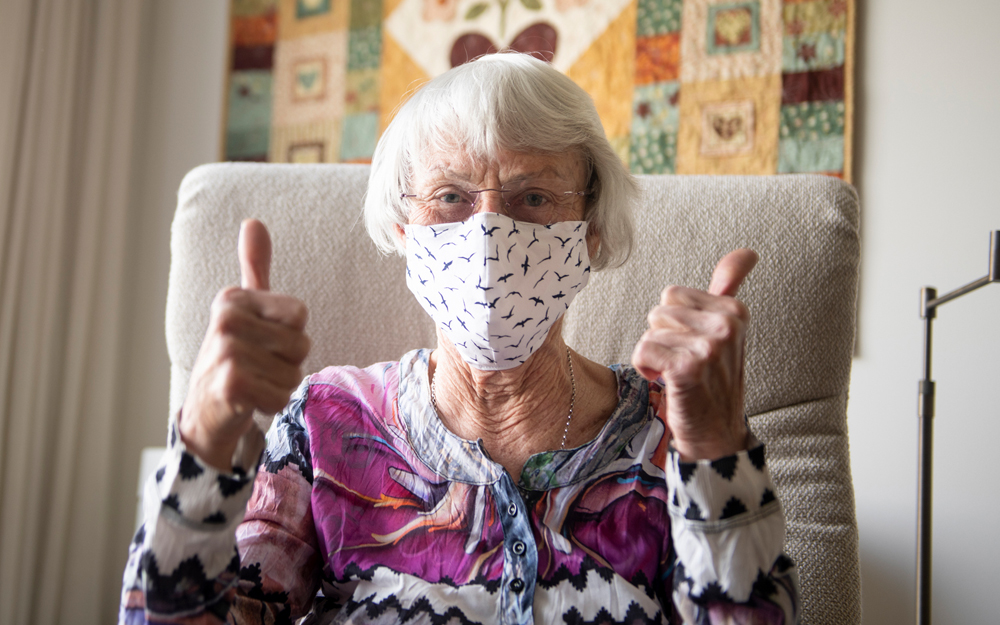
It’s important to know what to do if you have Covid-19 symptoms. Even more important is knowing how to take care of your High-risk relatives.
Safety measures Covid-19 as a new normal
When it comes to COVID-19, older people, people with past illnesses and children are especially vulnerable to severe illness.
Researchers are showing that adults 60 and older, especially those with preexisting medical conditions, heart disease, lung disease, diabetes or cancer are more likely to have a severe – even deadly – response to COVID-19 compared to other age groups.
Who is at high risk of becoming seriously affected by COVID-19?
Adults over 65 are at a higher risk of becoming seriously ill from COVID-19. The Centers for Disease Control and Prevention (CDC) has reported that 8 out of 10 COVID-19 deaths in the United States have been in adults 65 years old and older.
Older adults who live in nursing homes are at especially high risk of COVID-19 infection due to living in close proximity to others.
People of any age are at risk of serious illness from COVID-19 if they have health conditions, including:
- Lung conditions, such as moderate or severe asthma, chronic obstructive pulmonary disease (COPD), lung cancer, and other respiratory disorders.
- Heart disease, such as high blood pressure, stroke, coronary artery disease, heart failure, or a personal history of heart attack.
- Diabetes, including Type 1 and Type 2 diabetes.
- Weakened immune systems caused by cancer treatment, bone marrow or organ transplantation, immune deficiencies, HIV/AIDS, or prolonged use of medications such as corticosteroids.
- Obesity, especially if body mass index is 40 or higher.
- Chronic kidney disease, especially if undergoing dialysis.
- Liver disease
Safety Tips to protect yourself and your loved ones from COVID-19 infection
Keep yourself well is the first and most important, as a caretaker you should take all the precautions you can to avoid becoming infected yourself.
Here are some basics:
- Wash your hands frequently with soap and water for at least 20 seconds before and after providing care, preparing food, using the bathroom, or touching surfaces in public places.
- Avoid crowds, and if you cough or sneeze, do so into the bend of your elbow or into a disposable tissue.
- Keep your hands away from your face.
- Clean frequently touched surfaces in your home often, including mobility and medical equipment used by your loved one, such as walkers, canes and handrails.
If your loved one is at high risk for COVID-19 complications, there are easy ways to reduce the risk. One of them is to avoid contact with people by staying home as much as possible.
You should also follow all public health guidelines, including recommendations for social distancing, proper hand hygiene, cleaning and sanitizing of surfaces, and wearing a cloth face covering when going out in public.
You can also take care of your immune system and overall well-being by getting regular exercise. Managing stress, eating a balanced, healthy diet, and getting plenty of quality sleep is also helpful.
Minimize the risk
Postpone unnecessary doctor visits. If an older adult in your care is feeling well, consider helping them postpone any non-essential doctor visits.
Keep in mind that many older people, especially those living with chronic illness, have important relationships with their caregivers. To help them stay in touch, ask their doctors’ offices for telemedicine. This enables doctors and patients to communicate over video, email or other means rather than face-to-face.
Avoid travel. Older adults should put off non-essential travel, particularly cruises or trips with itineraries that would expose them to crowds.
Symptoms or exposure?
You or your loved one feel that you might have been exposed to someone diagnosed with COVID-19? If anyone develops symptoms such as cough, fever or shortness of breath, call your family doctor or urgent care facility.
For a medical emergency such as severe shortness of breath or high fever, call 911.



